Realism.
The island of Melos lies due south of Athens. This is a recent Google Earth image which labels it in Greek as Milos.
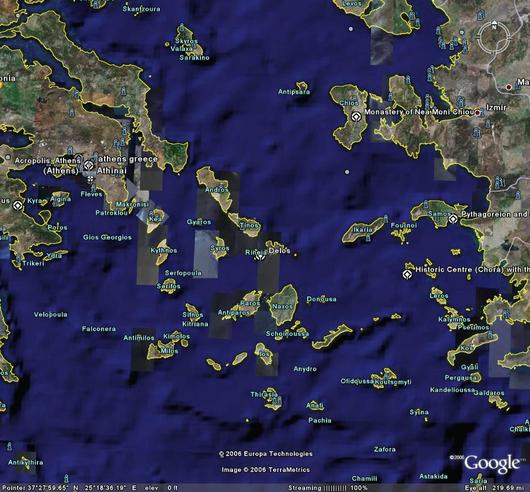
I have never been to Greece but I hope to do so one day and set my feet on the Acropolis, and take a ferry to Melos. The Acropolis.
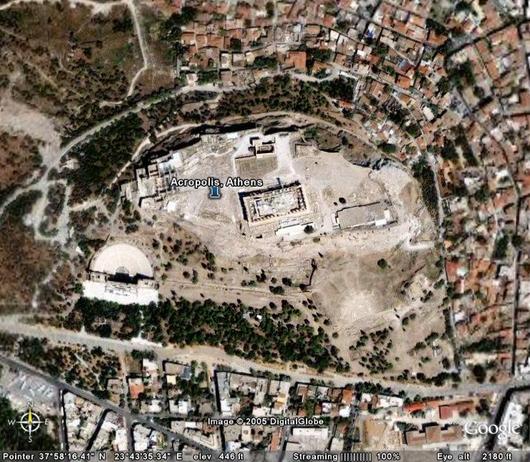
Back to Melos.
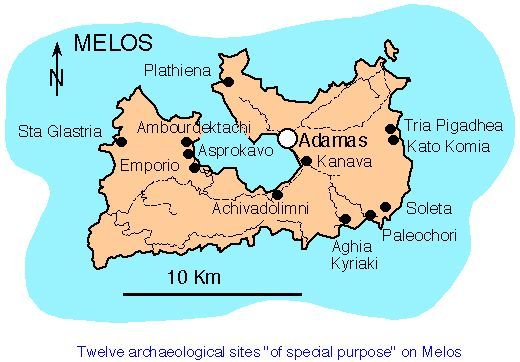
Despite the studied neutrality of Melos, Athens demanded that it enter the war as an ally or … else, much as the Persians had demanded of the Athenians at Marathon. The Melians refused in pretty much the same terms that the Athenians refused the Persians those years before. However, this time the Spartans did not come to the rescue and the islanders were slain, enslaved, raped, tortured, and murdered at the direction of the Athenian demos. We know that Alcibiades was present on this occasion. Is he one of the unnamed Athenian speakers? Why are they unnamed in this dialogue when all the speakers in the debates are named? Indeed, why is this encounter written as a dialogue in a closed room and not a public debate? Here is the way one group of students represented Melos.
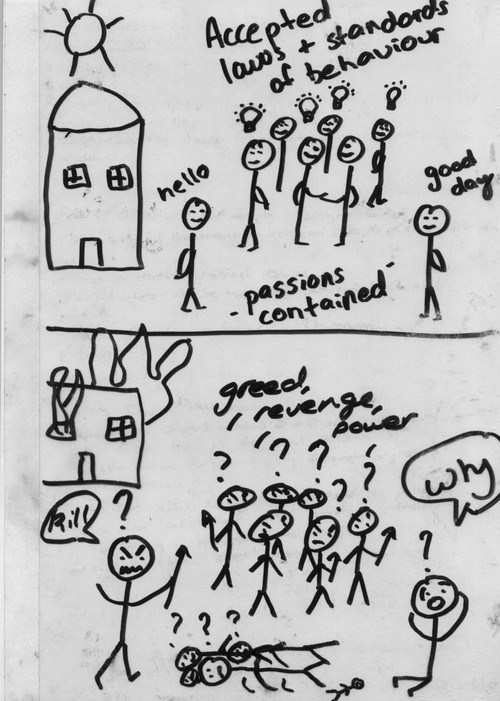
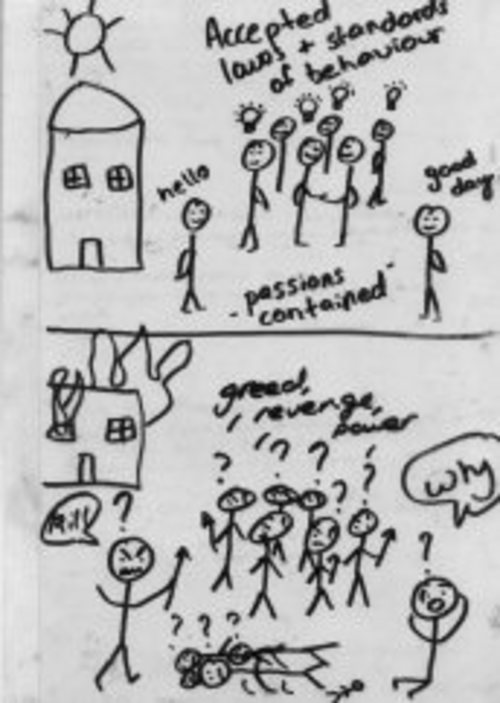
Even so, students still find it easy to justify the Athenians. They have absorbed another lesson about realpolitik, and if the Athenians say they have to do this, then they have to do it and will do it, say students. How it could possibly be in the interest of Athens to destroy a defenseless people, on a distant island, off the main track of the war, and alienate the good will of so many does not enter into the equation. But such is the imprinting that students do not question realpolitik when it is invoked, for to do so implies some sappy idealism. I am quite sure that most students retain this view despite my efforts to argue that one point of Thucydides’s book is to show the decay and corruption of Athens as illustrated in the dialogue. No names are given, on this reading, because it is Athens itself that is now speaking, not this person or that.
Mlios is the island on which the much later Roman statue known as the Venus de Milo was found. This photograph is from the Louvre and notice how large the statue is.

. I saw another version of this when I was in Tokyo in 2006. At Shibuya Crossing, featured in the film “Lost in Translation.” I think this image is reversed.
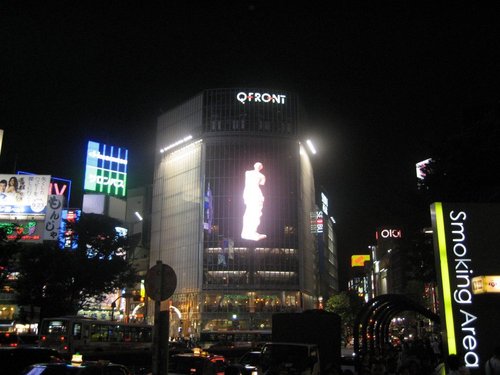
By the way, an earlier Athenian expedition had visited Melos some years before, earlier in the war, and accepted the Melians claim to neutrality no doubt due to some sappy idealism. We know who led that expedition, Nicias, the moderate.
